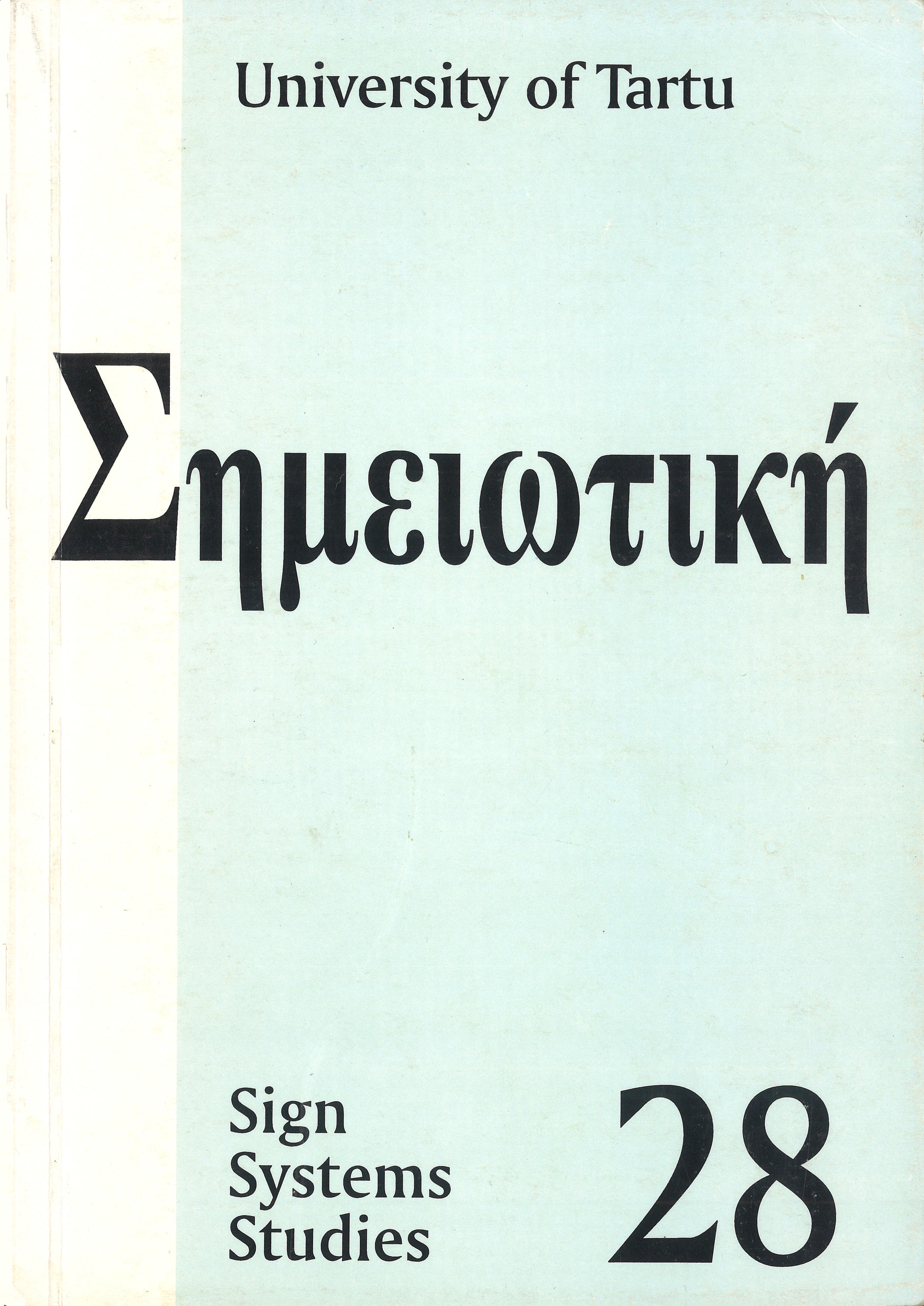Semiotics as a postmodern recovery of the cultural unconscious
DOI:
https://doi.org/10.12697/SSS.2000.28.02Abstract
This essay explores the terminology of semiotics with an eye to the historical layers of human experience and understanding that have gone into making the doctrine of signs possible as a contemporary intellectual movement. Using an essentially Heideggerian view of language as a heuristic hypothesis, the name semiotics is examined in light of the realization that only with Augustine's Latin signum was the possibility of a general doctrine of signs introduced, and that first among the later Latins was the idea of sign as a general mode of being specifically verifiable both in nature and in culture in establishing the texture of human experience vindicated according to an explanation of how such a general mode of being is possible. The contemporary resumption through Charles Peirceof the Latin line of vindication completed especially by Poinsot is explored along these same lines in terms of considerations of why the term semiotics has emerged as, so to speak, the logically proper name of the global interest in signs.


